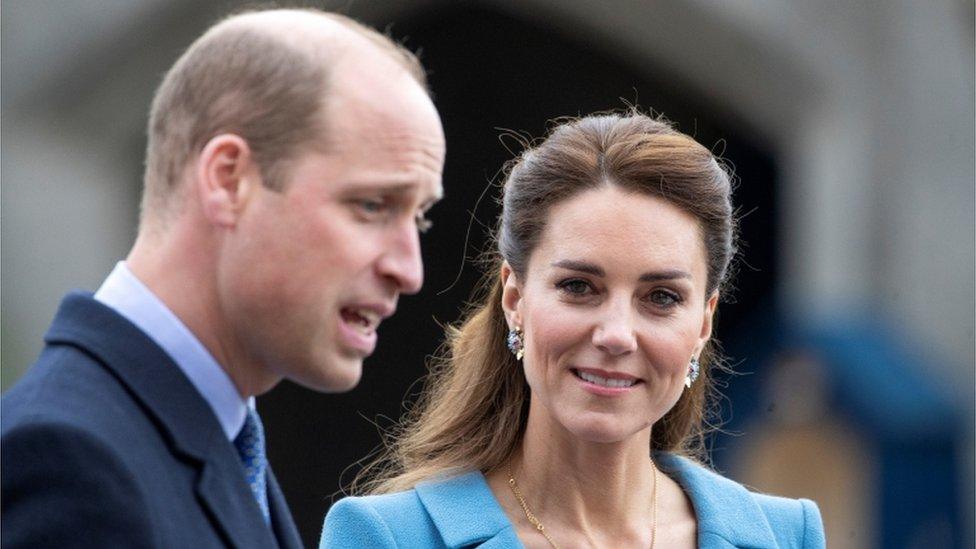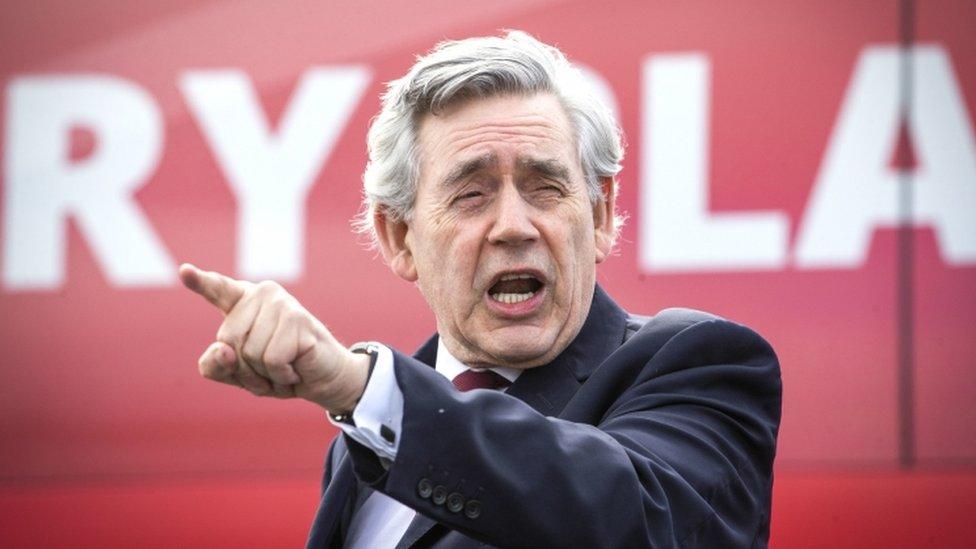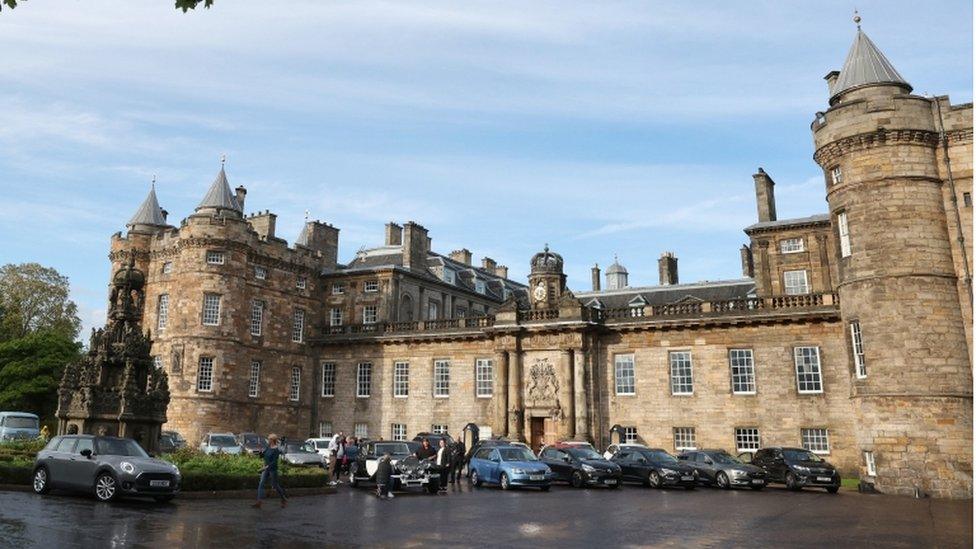William and Kate held meeting with Gordon Brown
- Published

The meeting was held on the final day of William and Kate's visit to Scotland
The Duke and Duchess of Cambridge have held a private meeting with Gordon Brown - who recently launched a renewed campaign to keep Scotland in the UK.
William and Kate had talks with the former prime minister at the Queen's official Edinburgh residence on Thursday.
William later gave a speech describing how Scotland had shaped him, and praised its people and values.
The royal couple had spent the week on a tour of Scotland.
In his speech at the General Assembly of the Church of Scotland, William said the country was "so important" to himself and his wife, and described how they had met an inspirational range of people during their visit.
The couple's meeting with Mr Brown and his wife Sarah at the Palace of Holyroodhouse was not publicised, but was later mentioned in the court circular - which details official engagements undertaken by the royals.
A spokesperson for Kensington Palace said: "During his time in Scotland Prince William has spoken to a broad range of people from different communities, including politicians from across the political spectrum."

Gordon Brown has been a vocal opponent of Scottish independence
The duke had talks with First Minister Nicola Sturgeon at the weekend and also met Alistair Carmichael, Liberal Democrat MP for Orkney and Shetland, when the royal couple - known as the Earl and Countess of Strathearn when in Scotland - opened Orkney's hospital.
Mr Brown, who served as Labour prime minister between 2007 and 2010, launched his Our Scottish Future thinktank in the wake of the SNP's victory in the Scottish Parliament election earlier this month.
It has been described as a "campaigning movement" that will seek to appeal to "middle Scotland" - those who are not already entrenched in their support for or opposition to independence.


Gordon Brown's meeting with Prince William wasn't pre-announced but was hardly secret as it appeared later in the court circular - the daily digest of royal events.
Kensington Palace told Channel 4 News the Duke of Cambridge was listening to community views on the issue of independence.
There's some concern on the pro-independence side that the royal family may be linking up with the campaign to save the union.
The former prime minister is a passionate defender of the union and would no doubt make his views clear to the Duke.
The Queen stepped into the fray in 2014, with a reminder to "think very carefully about the future" ahead of the vote on independence.
And then-Prime Minister David Cameron indiscreetly announced that Her Majesty "purred down the line" on hearing the result.
So it seems it's no secret the royal family want to keep the kingdom united, perhaps as much for their own preservation.
That said - the meeting between the prince and former PM could be more innocent.
Gordon Brown campaigns on global health and education and has known Prince William for years.
The Duke, or Earl of Strathearn, also met the first minister on Saturday at the General Assembly.
When politicians, the monarchy and constitution collide it creates a lot of palace intrigue.

Mr Brown has said those in middle Scotland are "patriots not nationalists" who want to see greater cooperation between the UK's governments rather than continual arguments over the constitution.
He was a prominent figure in the No campaign ahead of the independence referendum in 2014, when Scottish voters backed remaining in the UK by 55%-45%.
Shortly before the referendum, the Queen was reported to have said that she hoped voters would "think very carefully about the future".

The meeting was held at the Palace of Holyroodhouse in Edinburgh
Before the Queen's reported comment, Buckingham Palace had issued a statement saying any suggestion the monarch would wish to influence the outcome of the referendum was "categorically wrong".
Ms Sturgeon has pledged to hold a second referendum on independence once the Covid pandemic ends, arguing that the people of Scotland must have the right to choose their own future.
In his speech at the General Assembly, William said the memorable people he had met on his tour "make Scotland the vibrant, friendly, innovative and determined place Catherine and I love, and is so important to us."
The duke, who is the assembly's Lord High Commissioner, added: "I'm shaped by this place.
"The abiding affection I feel for it is rooted in my experience of its everyday life in people, relationships, and its ethic of neighbourliness."